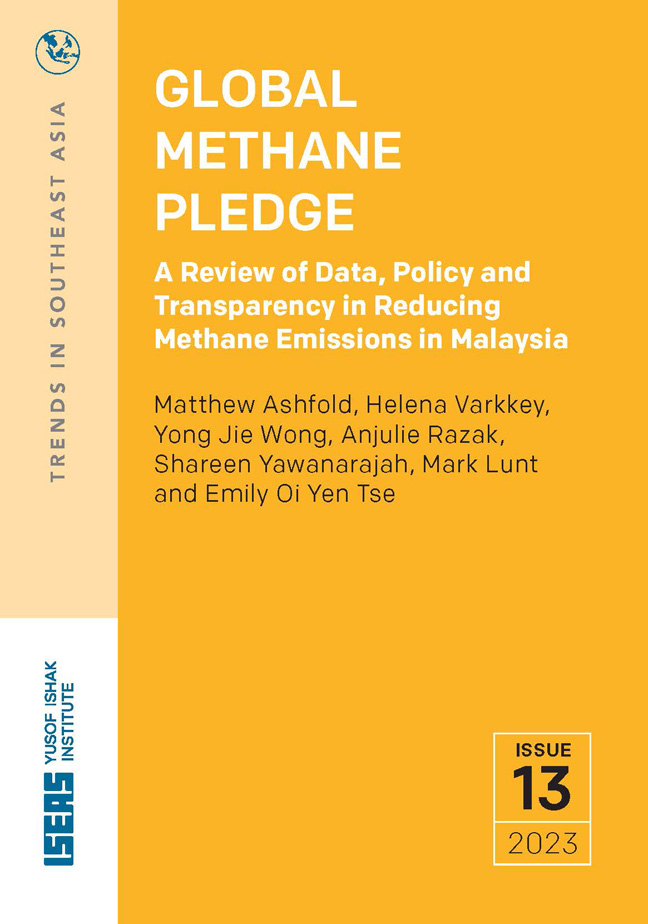
- Publisher:
- ISEAS–Yusof Ishak Institute
- Online publication date:
- March 2024
- Print publication year:
- 2023
- Online ISBN:
- 9789815104806
- Subjects:
- Engineering, Energy Technology
- Series:
- Trends in Southeast Asia

Malaysia is a signatory of the Global Methane Pledge, but the implications for national action on methane emissions remain unclear. A review of publicly available literature and data revealed that there is no clear national plan for methane action yet. Since signing the Pledge in 2021, there has been no demonstrable government initiative focusing on joined-up methane action at the national level. Malaysia does not have a methane strategy or policy, and sector-specific regulations focusing on methane emissions are either not present, vague, or publicly inaccessible.
There are indications emissions are falling due to positive corporate action. Effective methane reduction initiatives exist in Malaysia's top two methane-emitting sectors, oil and gas and palm oil, and key players have committed to net zero pathways with methane reductions central to progress to 2030.
Quantifying reductions with confidence remains challenging. Different reporting approaches and incomplete information on assumptions and uncertainties in quantification approaches, make independent analyses of reported emissions challenging.
Improvements in corporate Monitoring, Reporting, and Verification (MRV) in the coming years are expected.
Methane reduction is a 'low-hanging fruit'. Methane is a major initial lever to reduce greenhouse gas emissions up to 2030 in the climate plans of leading Malaysian industry players. Action to improve methane-related processes in the key oil and gas and palm oil sectors thus presents a valuable opportunity for Malaysia to contribute to global climate mitigation within its long-term national interests.
 Loading metrics...
Loading metrics...
* Views captured on Cambridge Core between #date#. This data will be updated every 24 hours.
Usage data cannot currently be displayed.